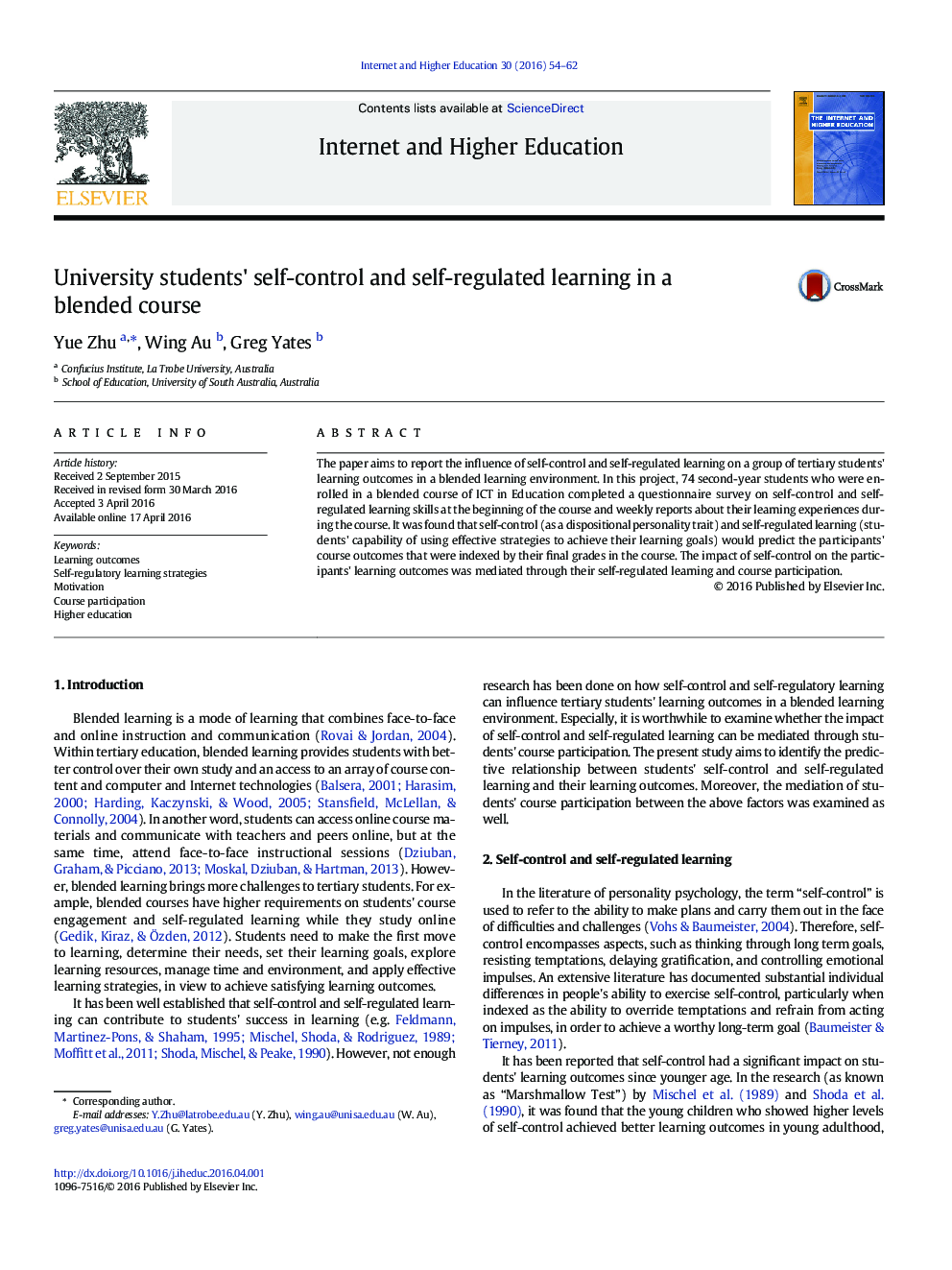| کد مقاله | کد نشریه | سال انتشار | مقاله انگلیسی | نسخه تمام متن |
|---|---|---|---|---|
| 357687 | 619938 | 2016 | 9 صفحه PDF | دانلود رایگان |
• It has been found that the students' learning outcomes were significantly influenced by three factors — self-control, self-regulated learning, and course participation.
• The students' self-regulated learning was constructed by four factors: a) self-management; b) metacognitive awareness; c) intrinsic orientation (i.e., desire for intrinsic understanding); and d) performance orientation (i.e., desire to perform well).
• When adding self-control and self-regulated learning in PLS modelling, it was found that the influence of self-control on the students' learning outcomes was mediated through self-regulated learning and course participation.
The paper aims to report the influence of self-control and self-regulated learning on a group of tertiary students' learning outcomes in a blended learning environment. In this project, 74 second-year students who were enrolled in a blended course of ICT in Education completed a questionnaire survey on self-control and self-regulated learning skills at the beginning of the course and weekly reports about their learning experiences during the course. It was found that self-control (as a dispositional personality trait) and self-regulated learning (students' capability of using effective strategies to achieve their learning goals) would predict the participants' course outcomes that were indexed by their final grades in the course. The impact of self-control on the participants' learning outcomes was mediated through their self-regulated learning and course participation.
Journal: The Internet and Higher Education - Volume 30, July 2016, Pages 54–62
